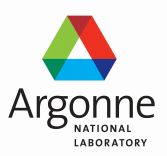Aug. 5, 2021 — Q-NEXT has added two new corporate partners to its collaboration: Verizon and Zurich Instruments USA, Inc.
 Q-NEXT, a National Quantum Information Science Research Center led by the U.S. Department of Energy’s (DOE) Argonne National Laboratory, is a partnership of three national laboratories, nine universities and, with the new addition, 12 leading U.S. quantum technology companies.
Q-NEXT, a National Quantum Information Science Research Center led by the U.S. Department of Energy’s (DOE) Argonne National Laboratory, is a partnership of three national laboratories, nine universities and, with the new addition, 12 leading U.S. quantum technology companies.
The Q-NEXT mission is to develop the science and technology to control, store and transmit quantum information, whether the information is distributed over the length of a computer chip or the distance between Chicago and San Francisco. Q-NEXT collaborators are working together toward this goal by developing new quantum materials and instruments that outperform current technology.
Unlike traditional information technologies, such as the internet or smart phone, quantum information technologies work by taking advantage of physics that operates at nature’s smallest scales, manipulating information encoded in matter’s quantum properties. The successful development of such technologies can lead to unhackable communication channels, ultraprecise sensors and more powerful computers.
Quantum information can be conveyed through a quantum network, analogous to our current internet. The secure and efficient transmission of information over a quantum network places new requirements on lasers, sensors and optical fiber. Verizon’s expertise in networking and security will ensure that key requirements are considered in Q-NEXT’s technology R&D roadmap.
“Verizon is excited to be participating with national laboratory, academic and commercial teams in the quantum communications group at Q-NEXT,” said Jean McManus, executive director of applied research at Verizon. “We look forward to contributing to the center’s roadmap.”
Zurich Instruments brings innovation to advanced instrumentation in quantum technologies, enabling the reliable control and measurement of quantum information. Zurich Instruments’ goal is to support quantum researchers and engineers by allowing them to focus on developing quantum devices, even as they benefit from the most advanced traditional electronics and software. The company will collaborate with Q-NEXT by participating in all its major research areas, including partnering on cutting-edge projects and training the future quantum workforce.
Collaborators at the two companies will join Q-NEXT’s nearly 100 researchers, who have been actively working for the past 10 months on developing the organization’s quantum technology roadmap and preparing for the completion of its two national foundries. The foundries will act as a “quantum factory,” producing a robust supply chain of high-quality, standardized quantum materials and devices.
Industry collaboration is vital to the Q-NEXT mission. Members of industry are embedded in every level of the organization. Active industry engagement enables Q-NEXT to effectively target the needs of technology consumers and translate research into practical technologies.
Through industry partnerships, Q-NEXT also boosts the growth of the quantum workforce, as partner companies embed students and early-career professionals among their staff to work on the most pressing problems in quantum science.
Q-NEXT is supported by the U.S. Department of Energy Office of Science.
About Argonne National Laboratory
Argonne National Laboratory seeks solutions to pressing national problems in science and technology. The nation’s first national laboratory, Argonne conducts leading-edge basic and applied scientific research in virtually every scientific discipline. Argonne researchers work closely with researchers from hundreds of companies, universities, and federal, state and municipal agencies to help them solve their specific problems, advance America’s scientific leadership and prepare the nation for a better future. With employees from more than 60 nations, Argonne is managed by UChicago Argonne, LLC for the U.S. Department of Energy’s Office of Science.
The U.S. Department of Energy’s Office of Science is the single largest supporter of basic research in the physical sciences in the United States and is working to address some of the most pressing challenges of our time. For more information, visit https://energy.gov/science.
Source: Argonne



























































